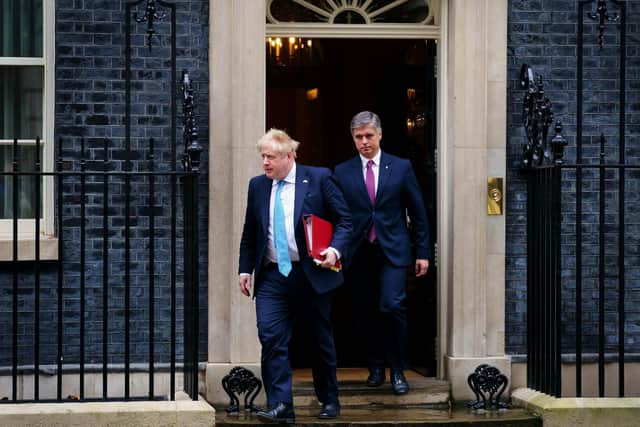Ukraine: Will sanctions imposed on Russia prove effective? - Greg Wright
But will this approach work? Critics say sanctions are often poorly conceived and rarely successful in changing a target’s conduct, while supporters contend they have become more effective in recent years and remain an essential foreign policy tool, according to analysis from The Council on Foreign Relations (CFR) an independent think tank.
Many scholars and practitioners believe targeted sanctions, can be at least partly successful and should remain in the tool kits of foreign policy–makers. Many world leaders hope the measures already announced could force Putin to think again.
Advertisement
Hide AdAdvertisement
Hide AdBoris Johnson said the UK and allies had put in place “the biggest package of sanctions ever imposed against a G20 nation”.


“We have seen organisations from banks to oil companies to football leagues to singing competitions who have made it clear that Vladimir Putin and his regime must be isolated from the international community for his actions,” he said at the Tapa military base in Estonia.
Oil giant Shell has announced plans to sell its stake in all joint ventures with Russian partner Gazprom, calling Russia’s invasion of the country “senseless” and a threat to European security.
The move came a day after UK-based rival BP said it would divest its 25 billion dollar stake in Rosneft, where it owned a 20% shareholding and held two board seats.
Advertisement
Hide AdAdvertisement
Hide AdThe Treasury targeted Russia’s central bank with sanctions in a response co-ordinated with US and European allies.
Foreign Secretary Liz Truss said all Russian banks would be hit with a full asset freeze within days as she announced new powers to limit them from clearing payments in sterling, which will initially target the nation’s largest bank, Sberbank. Analysts believe the sanctions will hurt Russia’s economy, although nobody knows if this will be enough to halt the invasion.
A note from Oxford Economics said: “Our baseline forecast is that the impact of the Russia-Ukraine war will lower overall world GDP by around 0.2% this year, but the impact on each region will vary.
“The economic consequences are dramatic for Ukraine and Russia, and significant for Europe. But unless there is a serious escalation, the effects on the US, China, and most of the emerging world should be limited.
Advertisement
Hide AdAdvertisement
Hide Ad“Russian financial markets are under heavy pressure from the West’s sanctions, which will damage Russia’s GDP significantly – by as much as 4%-6% relative to a pre-crisis baseline in a plausible downside scenario. This is towards the upper end of cross-country studies of the impact of past sanctions.
“Evidence from previous conflicts also points to a very steep drop in Ukraine’s GDP.
“For the rest of Europe, the negative effects will be greater than the global average due to stronger trade links with Russia and Ukraine, and most importantly the large gas price shock triggered by the conflict. But transmission through financial channels should be limited given low exposures to Russia.”
Susannah Streeter, senior investment and markets analyst at Hargreaves Lansdown, said the conflict in Ukraine has thrown the FTSE pack up in the air, with Russian miners plummeting in value.
Advertisement
Hide AdAdvertisement
Hide Ad‘’After Russia invaded Ukraine and then stringent sanctions were imposed on Moscow, the fortunes of the Russia focused miners have reversed dramatically,’’ she said.
There will, of-course, be voices who call for a more direct response. It’s always worth heeding advice from observers with first hand experience of conflict.
John Nichol, the retired Royal Air Force navigator who was shot down and captured during the Gulf War. said on Twitter: “The best we can do (at the moment) is continue massive sanctions (personal and national) and indirect military support in the hope that Ukraine can hold off the Russians long enough to make it hurt.”
We must all hope this strategy proves effective.
